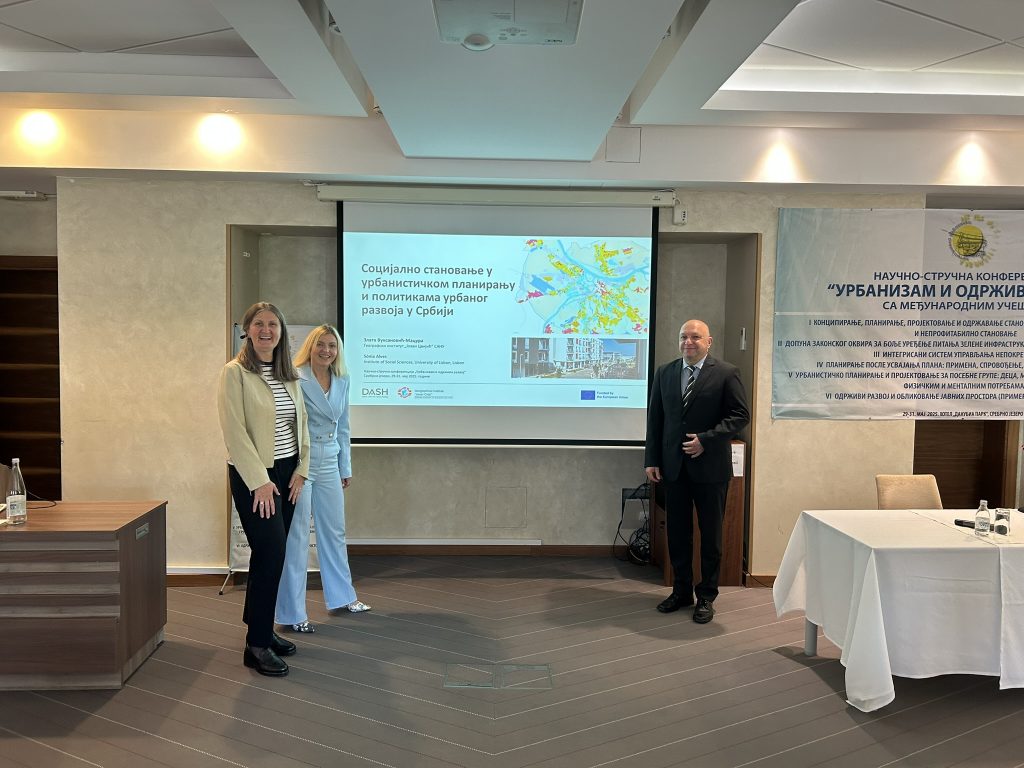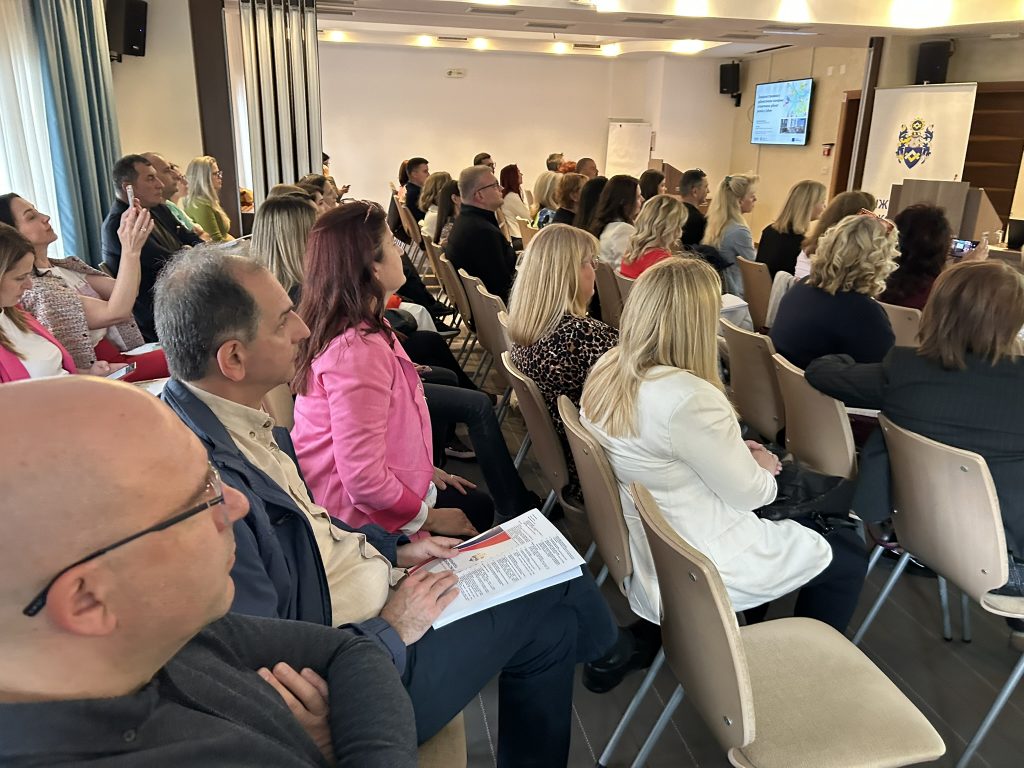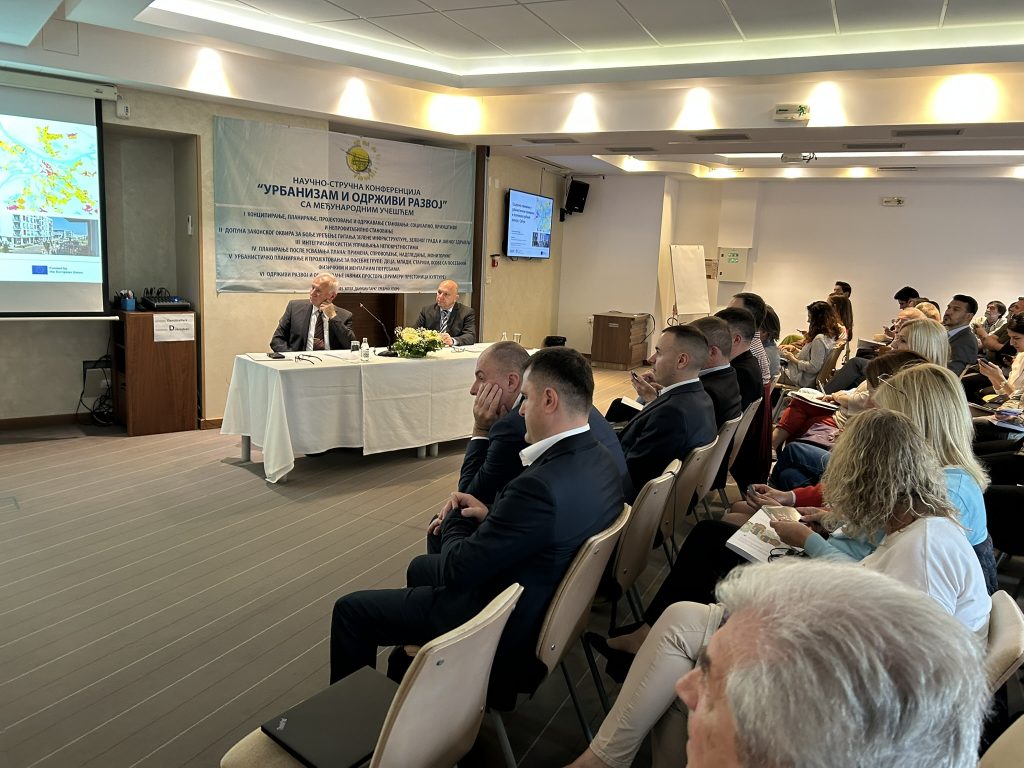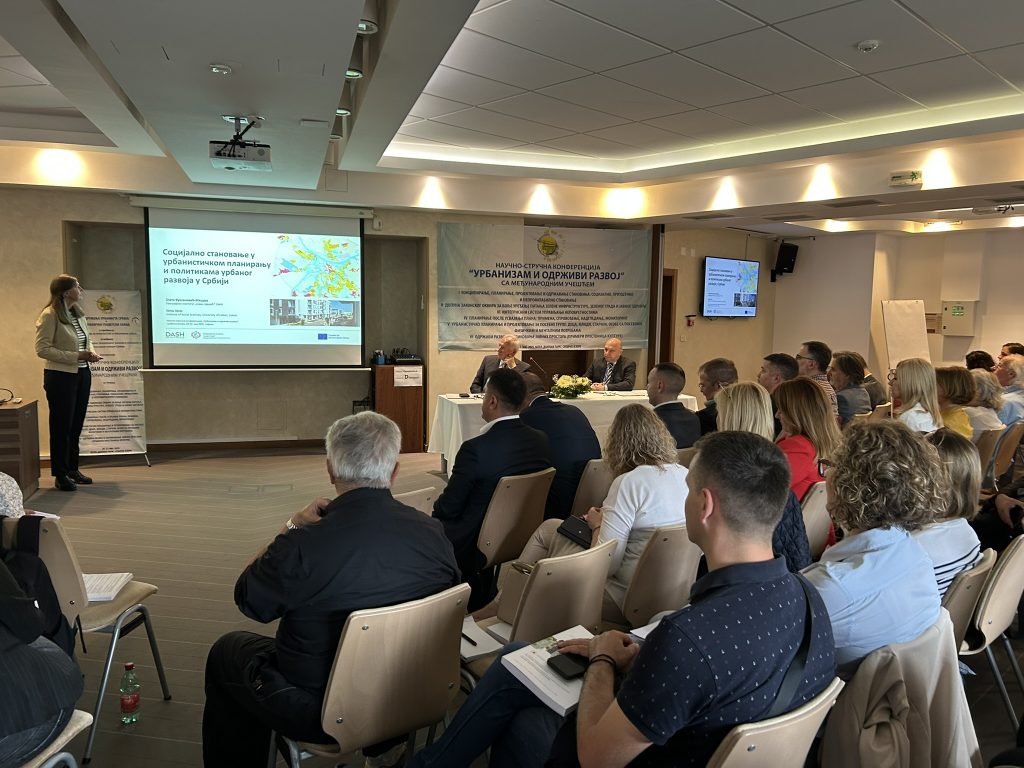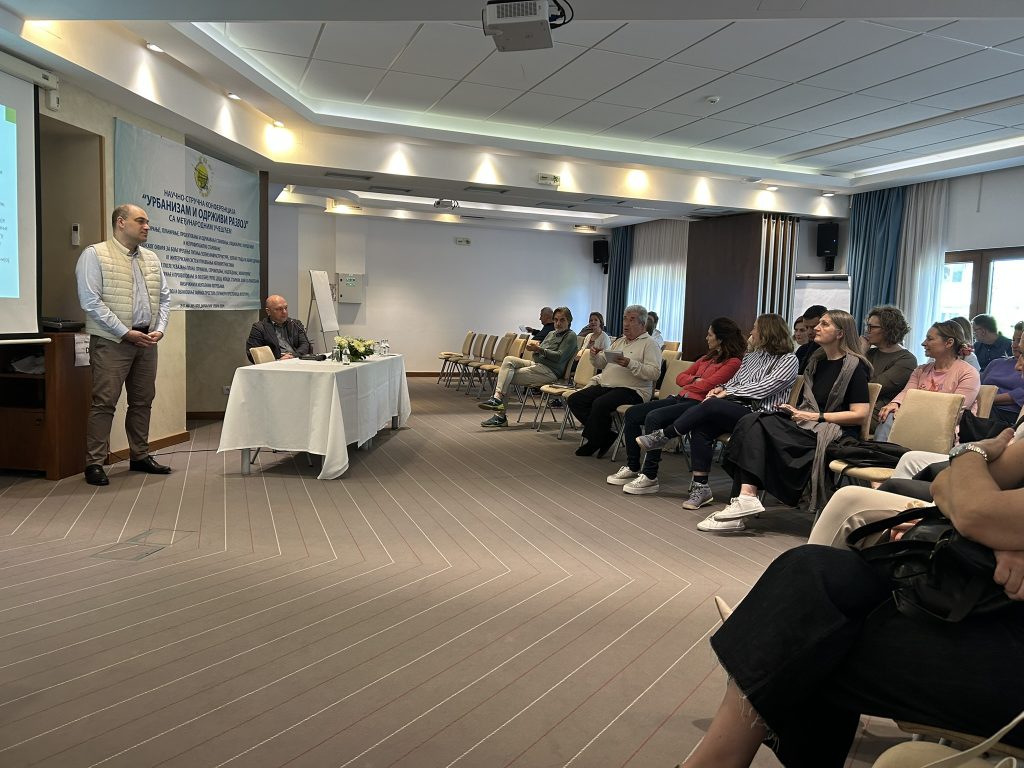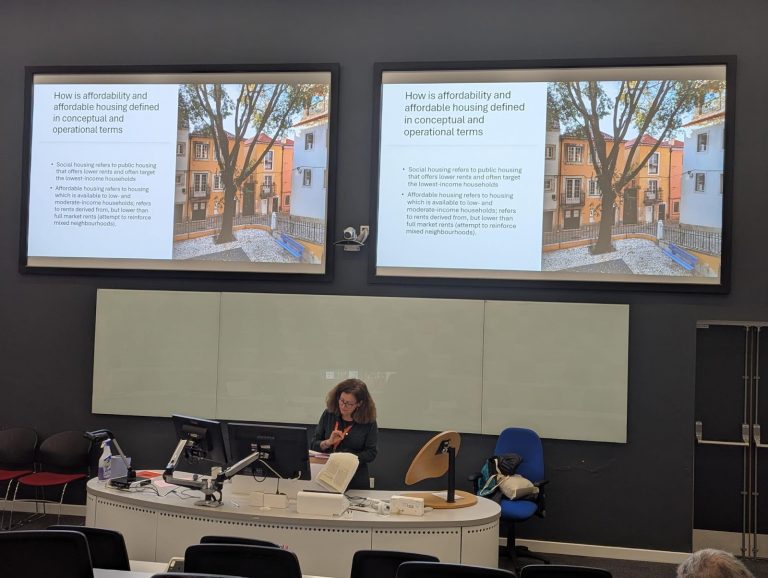By Ivana Momić and Aleksandar Jevtić
The 21st International Scientific and Professional Conference “Urbanism and Sustainable Development” took place in late May 2025 in Srebrno Jezero, Serbia. The conference was organized by the Serbian Association of Urban Planners (SUPA).
The three-day conference (May, 29–31) was organized around six thematic areas: Conception, planning, design and maintenance of housing: social, affordable and non-profit housing; Completion of the legal framework for better regulation of green infrastructure, green city and public health issues; Integrated real estate management system; Planning after the plan: implementation, enforcement, supervision, monitoring; Urban planning and design for special groups: children, youth, elderly people, people with special physical and mental needs; and Sustainable development and design of public spaces (examples of cultural capitals).
The conference brought together over 180 participants from Serbia, Bosnia and Herzegovina-the Republic of Srpska, North Macedonia, Slovenia, Croatia, Romania and Hungary. Within the framework of this conference, a total of 44 papers were presented, covering a wide range of topics relevant to both the state and society, including urbanism, architecture, transport, spatial planning, geodesy, cadastre and other aspects of spatial development.
The Scientific Committee included several renowned international experts, such as Sonia Alves, from Portugal, Els Keunen, from Germany, and Hans Thor Andersen, from Denmark, from the DASH partner organizations.
In addition to Aleksandar Jevtić and Ivana Momić, members of the Serbian Urban Planners Association (SUPA) who organized the conference, DASH member, Zlata Vuksanović-Macura from the Geographical Institute “Jovan Cvijić” SASA also participated, delivering an introductory and notable lecture accompanied by a presentation. The lecture focused on the topic Social Housing in Urban Planning and Territorial Strategies in Serbia, a subject developed in collaboration with Sonia Alves. They wrote in the abstract: ‘The post-socialist transition in Serbia was characterized by a great liberalization of urban planning, with a lack of a coherent policy of protecting the public interest in urban development. This transformation followed the massive privatization of the housing stock, which shifted housing from a public concern to a matter of personal responsibility and initiative. As a result, this process led to significant demand for housing and expressed housing needs. The emergence of affordable housing as a prominent urban phenomenon has become one of the key issues facing many cities in Serbia. In the early years of liberalization, there were attempts to include social housing in urban planning as a separate category within broader housing goals, but this trend proved short-lived. Recently, several cities have developed and adopted local territorial strategies that prioritize alignment with the United Nations Sustainable Development Goals, in particular the goal of fostering sustainable cities and communities, which includes ensuring access to adequate, safe and affordable housing, as well as basic services. This paper will analyze the extent to which new generations of urban plans and local urban development strategies provide a strategic and planning basis for ensuring social housing in Serbia’’.
Their paper addressed several key aspects: the theoretical framework, the context of social housing in selected European countries and Serbia, an analysis of how the social housing is addressed in Serbian urban and strategic documents, and concluded with recommendations and directions for future development.
Analysis of the treatment of social housing in urban and strategic documents in Serbia had a focus on the General Urban Plans of 4 large cities and 13 urban development strategies with identification of mechanisms and spatial conditions for the implementation of social housing, and a comparative insight based on the experiences of other European countries: Denmark, Germany and Portugal. The analysis of Serbian urban development strategies revealed a varying degree of recognition of the importance of social housing, , with the majority of these documents lacking concrete operational mechanisms for its implementation.
The recommendations and proposed directions for future development emphasized the need for harmonizing of urban and strategic documents, strengthening legislative and institutional frameworks, and establishing or strengthening institutions responsible for housing. Key measures included the introduction of mandatory quotas and defined locations for social housing within urban plans, the adoption and contextual adaptation of relevant EU best practices, and the repositioning of planning as a strategic instrument for social inclusion and the promotion of the public interest in housing. The presentation concluded with the illustrative case of “Belgrade on the Water” accompanied by a rhetorical question: how would the development of such a new residential area unfold under the prevailing social housing frameworks in Portugal, Denmark, and Germany?
The conference conclusion states, among other things, that a large part of the work is financially and organizationally supported through cooperation through international, cross-border and bilateral projects and networks. This gives new impetus not only to professional work of the SUPA members, but also to a broader stimulus at the regional and European level. Works in the field of social housing have shown that social care for this housing sector exceeds the needs of society and exceeds the level of developed European countries, so due attention should be paid to this and, through further work and research, the leadership should show what has been given to these works – concrete examples, important experiences in the development and improvement of relevant development documents. Also, the conference held a regular and elective assembly of the SUPA. In a addition to considering and adopting the activity report for 2024 and outlining the main strategic directions for 2025, awards and recognitions were awarded, as well as elections of new members to the governing bodies of the SUPA.
